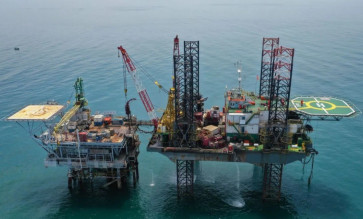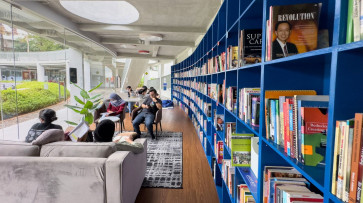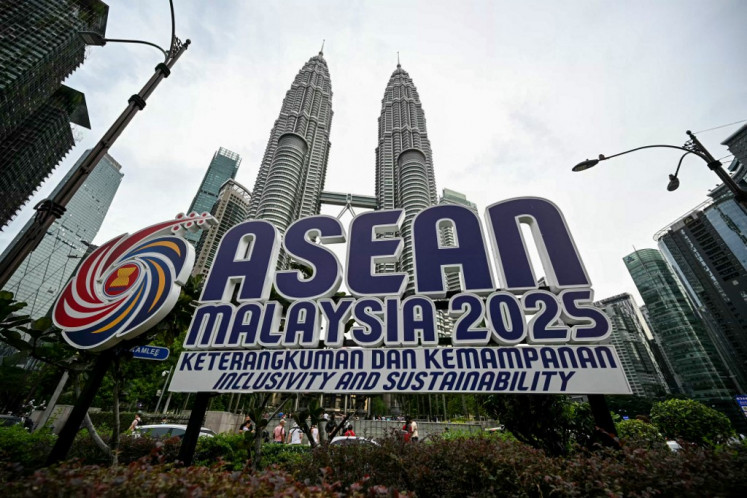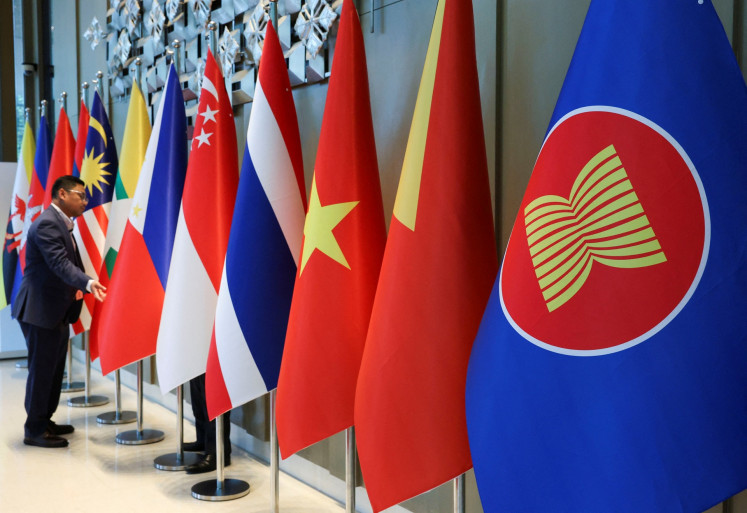Belgium to boost export of french fries to Indonesia
Belgium, a country with a UNESCO-recognized fried food eating culture, hopes to boost frozen potato exports to Indonesia, Southeast Asia’s biggest economy with over 260 million people and an emerging middle class
Change text size
Gift Premium Articles
to Anyone

B
elgium, a country with a UNESCO-recognized fried food eating culture, hopes to boost frozen potato exports to Indonesia, Southeast Asia’s biggest economy with over 260 million people and an emerging middle class.
The Belgium Potato Trade and Processing Industry Federation (Belgapom) is conducting a two-year Belgian fries campaign to achieve its goal, starting this year with Southeast Asian countries.
Five member companies — Agristo, Bart’s Potato Company, Clarebout Potatoes, Ecofrost and Mydibel — will participate in major food event SIAL Interfood at the Jakarta International Expo Kemayoran from Wednesday to Saturday.
“This year’s effort will focus on attracting B2B [business-to-business] transactions and, next year, we’ll do more consumer or retail-oriented approaches,” said Belgapom representative Wouter Trybou at a press briefing on Monday.
The small country with a sizeable amount of 5,000 fritkot (fry kiosks) expects to sell more than 20,000 tons of frozen potatoes to Indonesia four to five years from now.
Belgium, the world’s biggest exporter of potato fries, says its Bintje potatoes are non-genetically modified organisms (GMO) and processed without artificial color, which lends to a more natural potato taste.
In the first half of the year, Indonesia imported 4,000 tons of frozen potato from Belgium, similar to the figure throughout the whole of 2016. The figure is expected to double to 8,000 tons by year-end.
“The rapid growth of the food and beverage industry in Indonesia has led to the leap in frozen fries import,” he said.
As of June, Indonesia’s food and beverage industry grew by 7.19 percent year on year (yoy) with foreign direct investment in the sector having jumped by 21.4 percent yoy to $1.2 billion, government data shows.
Moreover, Indonesia imported 40.8 million euros (US$47.9 million) of frozen potatoes — 40,961 tons — last year, 11.6 percent of which came from Belgium, making it Indonesia’s fourth biggest importer after the United States, the Netherlands and Canada.
The production capacity of Belgian fries reached around 2 million tons annually with the export of frozen fries having jumped by 14.3 percent to 1.68 million tons last year. It sells 90 percent of its processed potatoes abroad, mostly to Saudi Arabia, Brazil and Chile.
Even so, the lengthy export permit process remains a major hindrance in selling to Indonesia.
“It needs four to five months to register one brand here. But once [a] brand is registered, we can use it to jack up sales for quite a while. The procedure is relatively lengthier here compared to other ASEAN countries, like the Philippines and Vietnam,” Trybou said.
Two-way trade hovered between $1.6 billion and $1.9 billion in the past five years with major exports of Indonesian footwear, rubber and clothing while major imports include organic chemicals, machinery, plastics and various products. Indonesia enjoys a yearly surplus of $600 million.
The ambassador of Belgium to Indonesia, Patrick Herman, said trade was expected to improve once the Indonesia-European Union Comprehensive Economic Partnership Agreement (CEPA) takes effect in around two years.
Besides trade, Indonesian investors were urged to invest more in Belgium because of its strategic location as a logistics hub on the continent. The Port of Antwerp is the second-largest port in Europe and a petrochemical center, and would therefore be strategic amid the United Kingdom’s exit from the EU.
“In a year or two, the UK will not be in the EU, so many Indonesian companies may want to relocate the European distributors or strategic centers [from the UK] to Belgium,” he told The Jakarta Post.









